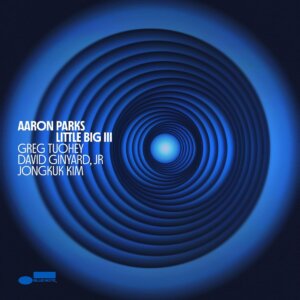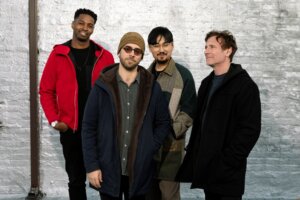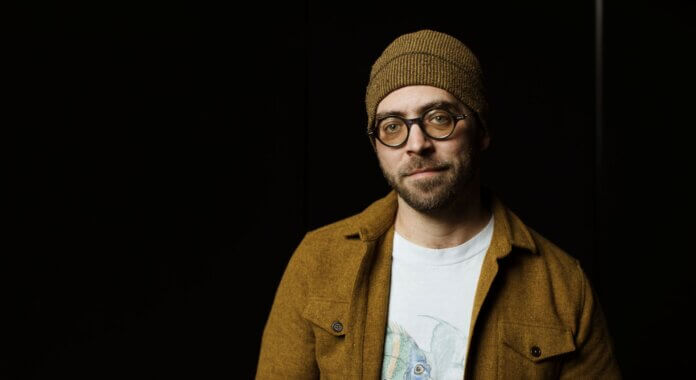Since the early 1990s, the Seattle music scene has been synonymous with grunge and bands such as Alice in Chains, Nirvana – although Nirvana actually hails from nearby Aberdeen, just under 200 kilometers from Seattle – Soundgarden, Pearl Jam, and Foo Fighters. Seattle is also the birthplace of Jimi Hendrix, though its jazz scene is often overlooked. The Penthouse, a jazz club active from 1962 to 1968, was a vital venue that hosted giants of African-American jazz, including Miles Davis, Bill Evans, Stan Getz, and John Coltrane. Coltrane appeared there in 1965 as part of a sextet that included his famous quartet – McCoy Tyner, Jimmy Garrison, and Elvin Jones – along with Pharoah Sanders on tenor sax and Donald Garrett on clarinet.
Today, the local jazz scene revolves around Jazz Alley and Tula’s, both located in the southern part of the city. Quincy Jones and Ray Charles, though not born in Seattle, also began their careers there, adding prestige to the city’s jazz reputation. Contemporary Seattle jazz blends tradition and innovation, embodying the essence of modern jazz. Two names stand out: drummer and rapper Kassa Overall, whom we have interviewed in these pages, and Aaron Parks, one of the most original pianists of his generation.
Aaron, now 41, gained much of his professional experience in New York. A child prodigy, he studied computer music and, at just sixteen, recorded three albums with Terence Blanchard. He spent many years as pianist for Kurt Rosenwinkel, and currently plays with Joshua Redman in the James Farm quartet, alongside Matt Penman on bass and Eric Harland on drums. Parks has contributed to soundtracks for several Spike Lee films and has released ten albums, the latest of which is Little Big III. In this quartet, he is joined by Greg Tuohey on guitar, David Ginyard Jr. on electric bass, and Jongkuk Kim on drums. The album has just been released on Blue Note – the perfect occasion to speak with him. Parks now resides in Portugal.
Little Big III is your second album for Blue Note. How did it come about? You had already recorded two albums with this title, both for Ropeadope. There must be a vision, a project.
Recently, with this band, I’ve been trying to create a link between the different musical genres we love and that have shaped us. My goal is to blend them – not by looking back at a genre that no longer exists, but by fusing them organically, in a way that feels integrated and natural. It’s not a patchwork; it’s more like a soup where the ingredients truly meld. This is an attempt to grow, to build something cohesive that draws on each member’s imagination. Our musical references include rock and electronic music, and we allow ourselves to superimpose improvisation over them. We hope we’ve made sense of it all.

Tell me about the musicians who play with you here. They’re the same as on Little Big and Little Big II, except for the drummer – Jongkuk Kim replaced Tommy Crane.
Yes, we have a new drummer: a brilliant, creative, and energetic musician who perfectly embodies the groove at the heart of these songs. His playing makes me feel alive and sparks my creativity. David Ginyard Jr. is a special bassist – he can play anything, with complete ease, but always in service of the music. Thanks to him, everything becomes more engaging. I care deeply about this band, partly because it focuses so strongly on emotion, but also on physicality and viscerality. David always captures these elements beautifully. His sound is incredibly danceable.
Greg played with Mark Turner in the 1990s and was deeply immersed in the New York scene at the time. He’s the connective tissue between all of us. At one point, he burned out on jazz and started playing rock in bars to find fresh inspiration. To me, he’s unique. The way he lets the melody shine is extraordinary – it’s as if you can see the song he’s playing.
Do you still live in New York?
No, I live in Lisbon now. I moved at the beginning of 2024, though I still maintain musical ties to New York.
You might not remember, but we met in Cobble Hill Park in Brooklyn more than ten years ago. What’s the New York music scene like now? Has the pandemic had a negative impact?
Ah, I didn’t remember that! Of course, the pandemic has had negative effects everywhere, including New York. Many people like me have left. It was one of the reasons my family and I decided to first move out of the city, and then to Portugal at the beginning of 2024. New York has meant a lot to me, and I owe it so much, but I felt that staying there could harm my mental health – especially now that I have two young children. Financially, it’s not even worth discussing; costs have skyrocketed. You work just to survive, without time to meet other musicians and create. The city’s charm remains, but more in the mind than in reality. When you live there, you’re so immersed in the routine that you can’t truly enjoy it. It’s better to visit for a holiday every now and then.
How do you find the music scene in Lisbon?
Very interesting. I’ve met some wonderful musicians and I’m excited to get to know them better. Europe holds a special allure for us Americans. I hope to collaborate with more European artists. Many American musicians – especially bassists like Michael Formanek, Brad Jones, and Drew Gress – have relocated here.
What does “success” mean to a jazz musician?
That’s a very interesting question. I think if you can support yourself and your family while keeping your love for music intact, you’ve reached your goal.
Is money important?
None of us got into this for the money. If someone did, they were disappointed. Financial stability is a blessing, but I still don’t fully know what “success” means. What’s visible on the outside often doesn’t match the reality. As the pandemic showed us, everything you’ve built can collapse in an instant. For me, success means being able to survive, pay the bills, and maybe save a little. I don’t think many of us aim to retire – it’s not something we can afford. But that’s also part of the appeal of being a musician, and one reason I keep doing it. I plan to make music for the rest of my life. Success, for me, is finding that balance where my love for music coexists with the basic survival needs of any musician.
Tell me about your main influences as a pianist and composer.
As a pianist, I’ve studied all the greats, but I’m tempted to highlight some lesser-known names. Still, if I’m honest, one of my biggest influences has been Keith Jarrett. He was the first musician I ever saw live – I was eleven. I also love Shirley Horn for her touch, tone, and sense of rhythm. McCoy Tyner is another influence, even if it’s not obvious in my playing. I could go on forever. Danilo Pérez, for example – there’s such depth in the way he plays. I feel every note. In fact, most of my influences are not pianists.

Give me some names.
Lester Young – I love his phrasing. Yusef Lateef. Thom Yorke from Radiohead. Miles, of course. João Gilberto. Charlie Parker. They’re all poets and killers at the same time.
Among composers?
That’s a tough one.
Kurt Rosenwinkel?
Yes. As you know, I played with him for many years, and he was an important mentor. His music has a clarity and mood that mean a great deal to me. As for composers, I should also mention Wayne Shorter and Kenny Wheeler – they combine intuition and rationality in a way that deeply inspires me.
And what about your connection with other types of music – hip-hop, classical, rock? You’re from Seattle, the home of grunge.
I grew up north of Seattle, but as a child I mostly listened to jazz pianists. I didn’t know much about the local scene. I discovered it later, and even then, I didn’t like rock. Then, around eighteen, many of the girls I knew listened to it, so I started too.
When we met in New York, you told me about Grizzly Bear.
Yes – about ten years ago, Chris Taylor, the band’s bassist and one of its producers, helped me mix my second album. He was a reference point for me then. I loved Grizzly Bear.
Do you like reading?
Absolutely.
Who are your favorite writers?
The title of my album comes from one of my favorite authors, John Crowley, who wrote Little, Big. I’ve always loved books that explore an inner world while also creating an imaginary one. I love Calvino and Borges, especially their short stories. I just finished a book by Japanese writer Ryuzo Saki. It’s hard to say who my favorites are.
You once told me you liked Yasunari Kawabata.
That’s true – thank you for reminding me. Recently, I discovered Richard Powers, whose novel The Overstory I found fascinating.
